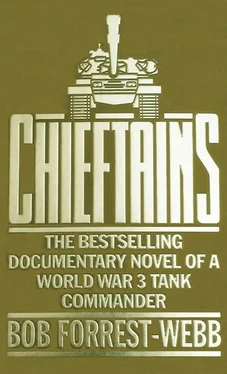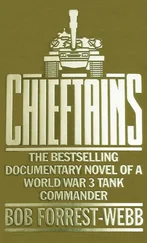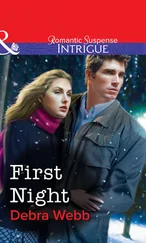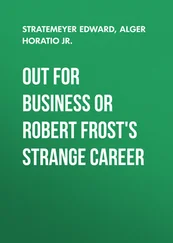But no matter where the Russian assault came, the plan was to channel the main thrust south of the Örreler Heide and the densely forested areas to the north of Celle which had been tank training grounds for the German army since the days of the Third Reich Panzers. With even more mountainous terrain on their southern flank the Soviet forces would find themselves trapped in a narrowing funnel terminating at the city of Hannover. The inertia of the attack would be absorbed, diminished until it was lost completely. Assaults on towns and cities digested incalculable amounts of men and machines, which the long and harried lines of Soviet logistics would find difficult to maintain. Valuable time would be gained for NATO reinforcement. Already the Reforger airlift was in progress, bringing more troops and materials to Europe from the USA, Canada, Australia, New Zealand and many other sympathetic nations. Every hour counted, and the next seventy-two would be critical. The longer the Warsaw Pact countries delayed their attack, or the more effectively it could be contained when it began, the better the chances of NATO victory.
Three types of weapons which would surely influence the outcome of the initial battles were enigmatic to Colonel James Studley. He had studied their use, and knew their capability and dangers. They were chemical, biological and nuclear. There had been public outcry in the British Isles against the development of the chemical and biological weapons, but the work had gone ahead in the United States, and amongst the munitions now stockpiled in secret dumps throughout the whole of Europe were shells, bombs and missiles with biological, chemical and nuclear capabilities. In theory, at the moment, they were to serve only a retaliatory purpose should similar weapons be used against allied troops or civilians. But a certain tactical nuclear weapon already deployed by NATO was in a different catagory in Studley’s opinion.
Nuclear tactical weapons existed in a number of various forms and strengths, from the diminutive depleted uranium shell, the American XM774, which although it had been designated ‘nuclear’ by international pressure had been developed for the sole purpose of the effective armour penetration of a single vehicle, to the 400 kt MGM-31A Pershings with their range of over five hundred miles and delivery speeds of Mach 8-plus at burn-out. In between the two were a variety of nuclear missiles, shells and mines, and it was these mines in particular that concerned Studley. He had learnt of them by accident, and the thought he found unpleasant was that they were controlled not by the men on the battlefronts, but by politicians perhaps three thousand miles away from the combat zone. The mines were pre-laid nuclear weapons sunk into strategic positions in West Germany, hidden lines of defence from north to south! Studley did not know their locations. Concealed in special chambers, below the depths where they could be exploded by any accidental method, they were the ugly monsters held in readiness for the protection of Western freedom. He could only guess at the power each of the mines might contain; it would be pointless for them to be small. They must be capable of taking out not just a regiment but perhaps a complete division, unless it were widely deployed, and they would have been laid in sufficient numbers to make one vast tactical nuclear strike effective against a complete enemy army in NATO territory.
The use of the weapons involved the terrible risk of triggering off a full-scale nuclear war against military and civilian targets alike. With much of its army totally destroyed along a complete front, the enemy would be faced with the acceptance of defeat and subsequent negotiation, or a retaliatory strike which would of necessity involve allied civilians and probable further nuclear attack by NATO long-range missiles deep into the enemy’s own territory.
The nuclear mines disturbed Studley’s thinking. He had been a soldier for many years, trained in the belief that war was the province of experienced fighting men, not of clerks or planners far away in hidden offices, or protected in bunkers or converted aircraft hundreds, of kilometers from the front lines. When he had first learned of the mines he had pictured a map of Europe on some distant planner’s wall, the sites of the nuclear weapons lighting up as men received the latest information from the battlefields and pressed the appropriate buttons to arm the mines in the areas of the greatest enemy concentrations. At some point, they received a President’s orders and turned their firing keys. Without warning to the troops on the battlefront, friend or enemy, the ground erupted with volcanic force and destruction beneath them.
But where, and when?
The West German government claimed to be committed to the policy of not losing even a single foot of land to the East. How far then would they permit an enemy to penetrate before the use of the nuclear mines was considered necessary… and who would make the decision? Was the critical depth of penetration a matter of centimeters, or beyond some planner’s line drawn from Hamburg in the north, to Hannover, Kassel, Nürnburg in the south? Perhaps there was no such line! The mines might simply have been seeded at vital strategic points, and would be detonated if it appeared the enemy advance could no longer be resisted by conventional warfare. He was certain of only one thing… the weapons existed!
These unpleasant thoughts were disturbed by the radio operator. ‘Division Headquarters, sir.’
He took a headset. ‘Hello, this is Sunray, over.’
‘This is Nine, Sunray. First chukka imminent. Troop movement sector Marigold. Full Red Alert. Over.’
‘Sunray Wilco. Over.’
‘Nine. Good luck, Sunray. Out.’
‘Good luck!’. Studley repeated the HQ benediction automatically, and handed the headset back to the operator. First chukka imminent! Why in God’s name did everyone assume all cavalry officers played polo? Chukka was a code word but it still meant that someone, somewhere, had thought it appropriate. Studley didn’t approve of the British habit of using sporting analogies in war; war was too serious to be likened to a game even by a figure of speech. ‘Philip…’ He caught the attention of his adjutant.
The adjutant looked up from the code lists he had been examining. ‘Sir.’
‘Order the group to stand-by, and tell them I want full radio silence on the UHF nets. Remind the squadron leaders I don’t want the men using energy-emitting equipment for the moment.’ Soviet locators would undoubtedly be pinpointing any source of energy as possible targets for their artillery.
‘Yes, sir.’
‘And when you’ve done that, I’d like the command vehicle moved to the derelict barn at Primrose. Ask the sergeant major to see to the new command platoon positions, and then get someone to do a stag for you… you haven’t slept for over twenty hours. Try to get some rest while you have a chance.’
The adjutant nodded. ‘Thank you, sir.’
‘So it’s on, James.’ Max Fairly, the second in command had been listening, and Studley found the familiarity of being addressed by his first name unexpectedly reassuring. Max was a close friend, an efficient but easygoing man whom Studley liked, and perhaps more important, trusted. Max was a little more heavily fleshed than when they had first met some years before, but he still kept himself fit with daily games of squash. He was forty-three years old, just a year younger than James Studley, and Studley knew Max, his wife Jane, and their son, well enough to feel he was part of their family — if only in the case of the boy, as a kind of well-liked adopted uncle. Unmarried himself, he had taught Max’s son how to shoot and fish, and now the boy had become a grown man; they had spent a leave together only a month previously on one of the best trout beats of the Hampshire Itchen. Memories of the week had saddened Studley during the past hours. He had encouraged Max’s son to choose a military career, and he was now a subaltern in a detachment of the Devon and Dorsets, trapped in West Berlin since the city had been sealed by East German forces two days previously.
Читать дальше












